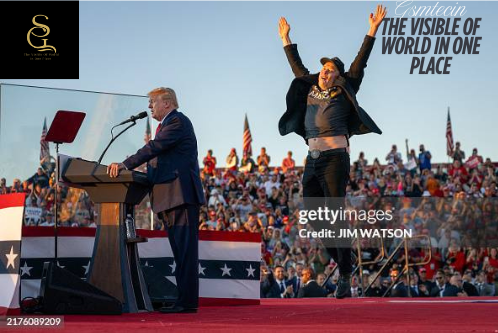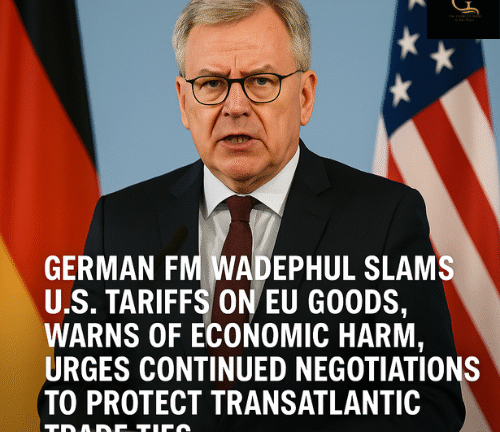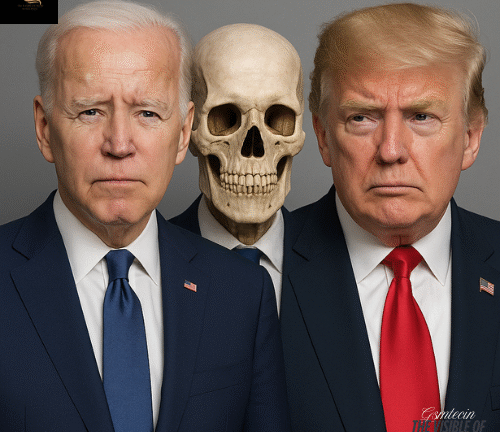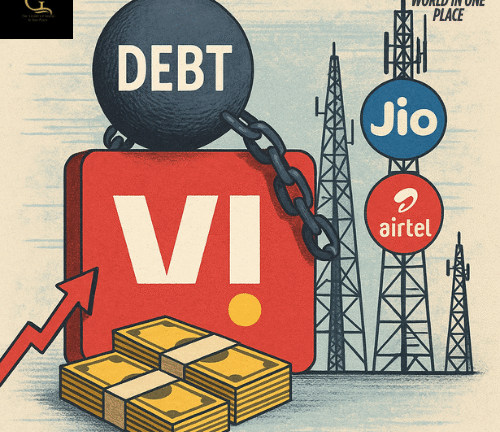Elon Musk has resigned from his position in the Trump administration’s Department of Government Efficiency, or DOGE. This concludes Musk’s controversial and high-profile tenure in Washington, when he played a vital role in a major cost-cutting push within the federal government. His tenure at DOGE was marked by drastic policy shifts, legal issues, and intensive media scrutiny, not to mention a significant influence on his economic interests.
Musk’s position at DOGE was initially temporary because he was designated as a “special government employee,” which permits for only 130 days of federal work per year. He reached that limit in late May 2025, prompting his planned exit. However, Musk’s leaving occurred shortly after he publicly criticised President Trump’s budget proposal, called the “big beautiful bill.” The measure included big tax cuts and significant increases in defence spending, which Musk claimed contradicted DOGE’s mandate of cutting federal waste and lowering the national deficit. He voiced dismay, adding that the bill would increase the deficit to $3.8 trillion, undercutting the cost-cutting efforts DOGE had undertaken.
Musk announced his leaving on X, which was formerly Twitter. “The DOGE mission will continue to grow even without his direct involvement,” he wrote in his post, thanking President Trump for the opportunity to serve. He reiterated his opinion that modernising government processes and reducing waste are important objectives, and he expressed his desire that DOGE will become “a way of life” for all federal departments.
The debut of DOGE coincided with President Trump’s inauguration for a second term on January 20, 2025. The department was created to update antiquated procedures, cut federal jobs, and discontinue projects deemed ineffective. Musk was generally seen as the initiative’s driving force, despite the fact that he was never formally named as its leader. Because of his influence, DOGE cut more than 260,000 federal employment in an effort to save money. These cuts targeted programs related to diversity, equity, and inclusion as well as organisations like USAID.
According to the department, its reforms have resulted in savings of $160 billion. External investigations, however, have questioned that number; according to some estimates, the actual cost to taxpayers may be a net loss of $135 billion as a result of mistakes, inefficiencies, and unforeseen effects of the quick downsizing.
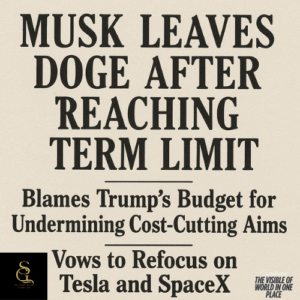
Musk’s tenure in the federal administration was not without legal challenges. DOGE’s tactics resulted in a number of lawsuits. Critics accused the department of breaking privacy rules, avoiding congressional supervision, and doing constitutionally problematic activities. In certain cases, federal justices overruled DOGE’s findings, ordering the reinstatement of wrongfully terminated personnel, including those involved in sensitive national security areas like nuclear energy. Musk’s Silicon Valley-style “move fast and break things” mindset collided with the bureaucratic structure of federal operations, culminating in a series of legal and procedural fights.
According to reports, Musk had disagreements behind the scenes with key members of the Trump administration, such as trade adviser Peter Navarro. Although Musk and Trump had initially shared similar objectives, tensions increased when Trump’s actions began to deviate from DOGE’s original purpose. Musk reached a breaking point when he publicly criticised Trump’s budget, which increased pressure on him to resign.
Musk has encountered increasing criticism from customers and shareholders. One of his major businesses, Tesla, had its worst-ever quarterly performance, with profits falling 71% and car deliveries falling 13%. During Musk’s time with the government, the company’s stock price fell by as much as 45%, but it eventually recovered considerably. Tesla declined to provide a growth prediction for the future, pointing to persistent concerns such as consumer backlash and shifting political opinions.
Activists connected Musk’s political involvement to their protests by launching boycotts against Tesla and damaging cars and charging infrastructure. U.S. Attorney General Pam Bondi described the vandalism as “domestic terrorism” due to the severity of the retaliation, highlighting the unpredictability Musk brought to both the commercial and political spheres.
Musk has pledged to withdraw from political involvement and return his attention to his commercial endeavours in recognition of the costs. During an earnings call, he informed investors that he would significantly cut back on his time spent on political matters and instead focus it on SpaceX and Tesla. Musk stated at a recent business gathering in Qatar that he plans to continue leading Tesla for at least the ensuing five years.
Musk also made hints about reducing his political contributions. He became a lightning rod in the business and political worlds last year after giving up to $300 million to Trump’s campaign and other Republican organisations. Reducing those payments is part of his larger plan to keep the public away from contentious political topics.
With or without Musk, the White House maintains that DOGE’s mission will continue. According to Vice President J.D. Vance, Musk is still a close ally and will continue to provide informal advise. By July 4, 2026—the 250th anniversary of American independence—the department is scheduled to close. DOGE is anticipated to continue its mission of reducing inefficiencies and simplifying federal operations, even though its future leadership is still up in the air.
In a strange turn of events, Musk’s preferred cryptocurrency, Dogecoin, is also associated with the acronym DOGE. Dogecoin’s value increased by almost 10% when Musk and Vivek Ramaswamy were first named as the department’s leaders. Even after Musk leaves office, the Doge meme and the coin continue to follow him, demonstrating his continued power over the cryptocurrency.
Ultimately, Musk’s brief but impactful entry into politics provides a case study of the difficulties of introducing a Silicon Valley perspective to Washington. Like Musk himself, his reign was audacious, disorganised, and intensely divisive. One thing is certain: Elon Musk’s tenure in the White House will be regarded as anything from typical, regardless of whether DOGE’s impact is perceived as transformative or harmful.

